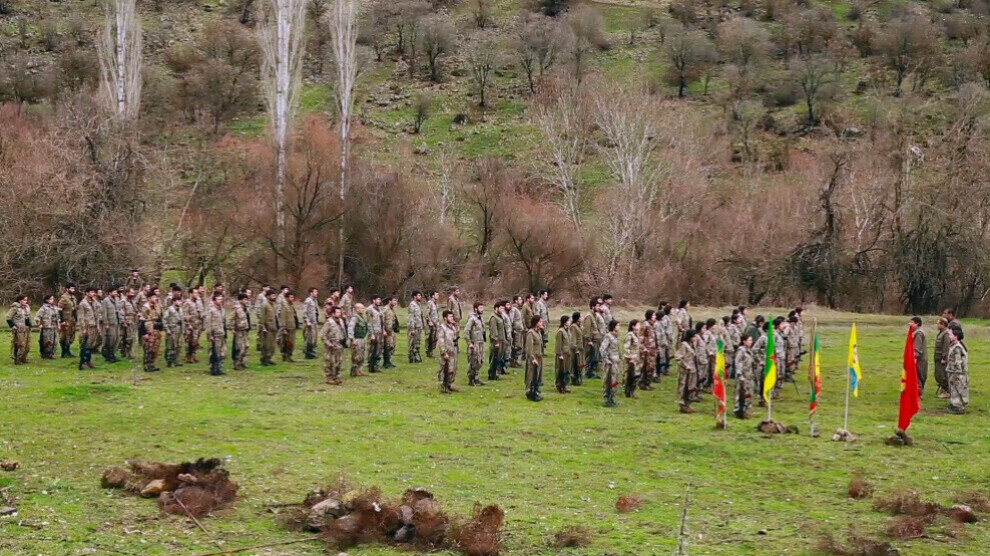Those who are not ready for change will lose
Those who once claimed to oppose guerrilla warfare and conflict have now become more pro-guerrilla than the PKK itself, argues Zeki Akil.
Those who once claimed to oppose guerrilla warfare and conflict have now become more pro-guerrilla than the PKK itself, argues Zeki Akil.

Responding to the call of Leader Apo [Abdullah Öcalan], the PKK decided to end its existence and armed struggle. This was not an ordinary or easy decision to make. We are talking about a fifty-year-old party and an uninterrupted struggle. The PKK gave tens of thousands of martyrs. The people paid a heavy price. During these difficult years, under the leadership of the PKK, the Kurdish people were able to assert themselves and step onto the stage of history. In this sense, the PKK became a movement that both made history and was recorded in history.
Alongside this historical role, the PKK left deep marks on the Kurdish people. It brought about great changes. The PKK became more than just a party; it became a national-political identity for the Kurdish people. Therefore, the end of the PKK's existence did not only interest its cadres and sympathizers, but the entire population. Because the people trusted their leadership and their party, they did not experience a wave of disorientation or confusion. But they tried to understand what would replace the party that had occupied such a meaningful place in their lives, what would happen next, and eagerly awaited the Leader’s statements.
Leader Apo's theoretical breakthroughs and new interpretations of socialism will be widely debated across the world. His interpretations of history and society, the emergence of the state and social classes, go beyond known frameworks. In this respect, they are resonating with researchers in scientific fields related to history and society. There will be problems of understanding and interpretation; criticism will come. These are normal. New ideas are not immediately accepted, and mental paradigms do not change overnight. Leader Apo himself supports discussion and understanding of his views. He grounds his ideas in historical and social foundations and believes in their truth.
The Kurdish people's experience of spending 50 years with the PKK and Leader Apo makes them more confident. Because they trust and believe in their leaders, they do not waver. However, there is a challenge in understanding the process and positioning themselves accordingly. They are determined in their choice and in protecting their gains; there is no vacuum in this regard. But there are circles that don’t know how to respond to the new process and are not ready for a change in their current stance.
Leftist circles in Turkey will be among the most affected by these changes. Some welcome and support them. Some try to understand and follow. But those who view things through established patterns and position themselves according to existing alignments will struggle. This is understandable. Revolutionary movements in Turkey did not have deep and comprehensive analyses regarding Kurdistan. They saw the issue as part of the socialist revolution. Therefore, they opposed and rejected the Kurds’ separate organization. When the Apocular (followers of Apo) emerged, they introduced the thesis "Kurdistan is a colony." Most socialist and leftist movements did not understand or accept this for a long time. There was a sharp ideological struggle at that time, with tensions and clashes.
Reformist groups in Kurdistan also had difficulty understanding and accepting the Apocular. There was an intense ideological struggle with them as well. The Apocular always pioneered new paths in life, work, and thought, showing their distinctiveness. Parties like the KDP and their affiliates did not accept the Apocular’s socialist, revolutionary leadership. They took a hostile stance. The PKK's resistance in prison against the September 12 coup and its stance against fascism surprised them. In a way, they were rendered ineffective and left in a vacuum. When guerrilla warfare began in 1984, they were shocked. Leftist circles and Kurdish reformists were as shocked as the state. Some panicked. Many cried out that the PKK was endangering the process, as Turkey was heading into elections and transitioning to civilian rule.
To this day, many groups have not supported or embraced the guerrilla war. They avoided unity and alliance with the PKK. Even the alliances established with great efforts by Leader Apo did not last long. They did not position themselves in opposition to the state and remained observers. Some groups saw the armed struggle as wrong and engaged in counter-propaganda. Generally, they settled into the system in some way, built families, and tried to secure their lives. Interestingly, those who used to oppose the guerrillas and the war are now acting more like guerrillas than the PKK itself, attacking by asking, "Why are you ending the war?" The PKK fought for decades. Those who didn’t act or resist all those years are now accusing the PKK of liquidation and surrender. Meanwhile, the KDP's sycophants are attacking the PKK and its leadership as if they had fought and resisted valiantly.
The Kurdish people in all four parts [of Kurdistan] and in the diaspora have been nourished and influenced by Leader Apo and the PKK and became patriots. In a sense, the Kurdish people were created within resistance and with its culture. Therefore, they will not give credence to those who spread confusion and pessimism. Just as they walked with the PKK for fifty years and gained identity and power, they will now emerge even stronger. The people will not follow those who are thrown about here and there, but will continue to center themselves around Leader Apo.
Source: Yeni Özgür Politika